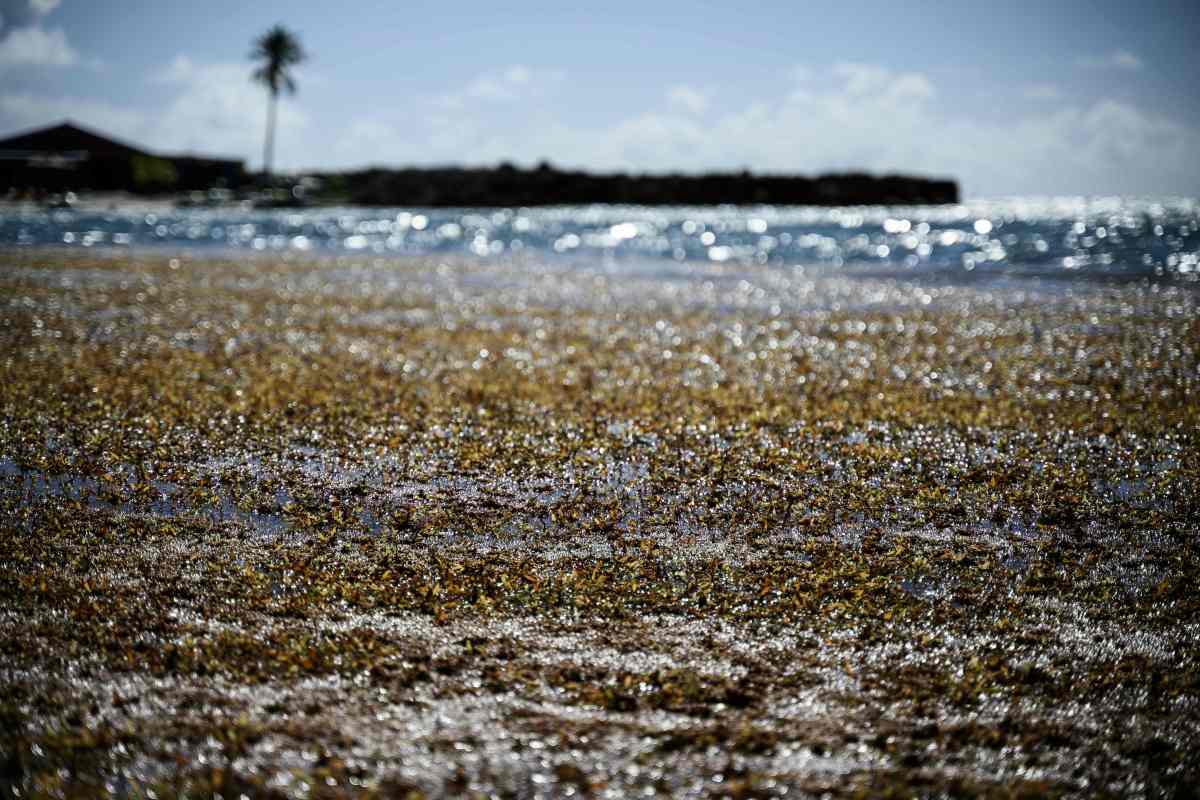Products You May Like
A brown macroalgae native to the Atlantic’s Sargasso Sea is increasingly a menace to coastal ecosystems and communities across the Gulf of Mexico, ever since mats of the normally beneficial seaweed (known as sargassum) exploded in numbers in 2011. This is the backdrop for Carbonwave, which recently raised $5 million to put the hulking algae blooms to good use.
Researchers say farm and sewage runoff is likely driving the now 5,000-mile-wide “Great Atlantic Sargassum Belt.” Climate change may also be playing a role.
There’s no need to run screaming from sargassum, despite the tone of some stories covering the Florida-bound blooms. Still, they pose a threat to coral reefs and tourism-dependent livelihoods alike. When the stuff piles up on beaches, it rots, emitting skunky hydrogen sulfide.
The recent sargassum surges are forcing folks to find creative ways to get rid of it, and already, possible applications run the gamut. Researchers and entrepreneurs aim to turn it into syrup, bricks and even jet fuel. As for Carbonwave, the Boston- and Puerto Rico–based startup is using it in fertilizer, cosmetics and even faux leather.
Backed by ESG-themed investment firms Natixis and Viridios Capital, as well as ocean-focused VC Katapult, Carbonwave says the new cash will help it scale production of its seaweed-based emulsifier for cosmetics. The startup said in a statement that it “has already sold half a ton” of its emulsifier, which it created as an alternative to petroleum-based ingredients. The company also claimed that its sargassum fertilizer “reduces the need of” climate change-driving nitrogen fertilizer.
CEO Geoff Chapin said Carbonwave makes these products through a “proprietary extraction process,” which involves pressing the seaweed and removing the arsenic. The process yields a liquid fertilizer, while the leftover pulp forms the basis for the emulsifier and fake leather. The way Chapin tells it, the company uses “almost every part of the seaweed to make these products.”
Carbonwave is part of a wave of startups vying to turn algae into environmentally friendlier products. For starters, there’s H&M-backed Algiknit (now Keel Labs), which creates textiles; a slew of bioplastics companies, including Loliware and ULUU; and a firm called Umaro, which makes sea-bacon. Seaweed startups often focus on commercializing kelp in one way or another, but a few (like Carbonwave and Seaweed Generation) focus on sargassum.
“We need to put it to good use before it creates more ecological and climate harm,” Carbonwave told TechCrunch.
The startup added that it topped off its $5 million Series A with additional funding. It’s secured at least $12 million to date.
